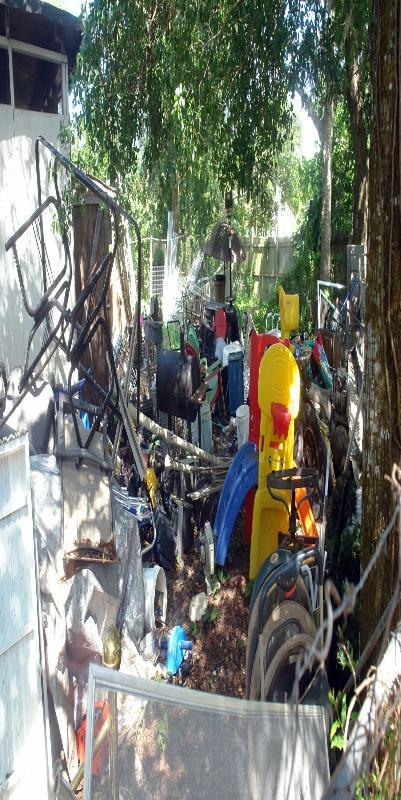Eliminate water holding containers

The most effective method for control of container mosquitoes is source reduction, which means eliminating the places where they develop. This can be done by draining, removing, or covering any water holding container such as old tires, buckets, garbage cans, bird baths, boats, tarps, and similar objects.
- Small containers such as disposable plastic containers, cans, and others should be picked up and properly disposed. Containers that are in use such as pet dishes and bird baths should be flushed with clean water at least once per week to eliminate the immature stages of mosquitoes developing there.
- Some container mosquitoes will also develop in small water holding depressions on the ground and in isolated pockets of drainage and irrigation ditches; to prevent breeding, the former should be filled and graded and the later should be kept clear of vegetation and obstructions to water flow.
- Water holding areas of trash/debris piles and clogged roof gutters also provide breeding habitats for mosquitoes and should be cleaned-up.
- Don't overlook debris accumulations on rooftops and other out of the way places.
- Debris and other water-holding objects such as tires piles and small boats that can't be removed or stored indoors should at least be covered to keep them dry and inaccessible to mosquitoes.
- Bromeliads and other water holding plants should be flushed regularly with clean water; tree holes can be filled with sand or cement to prevent water accumulation.
